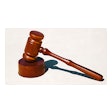Copyright 2017 Gannett Company, Inc.
All Rights Reserved
USA TODAY
LAUSANNE, Switzerland - Three years after the first major revelations about systemic Russian doping came to light, the International Olympic Committee's decision to ban Russia from the Pyeongchang Olympics brought significant sanctions on international sport's biggest stage.
Russia will be banned from the Olympics, punishment for what an IOC commission concluded Tuesday was a "systematic manipulation of the anti-doping rules" that operated through the 2014 Sochi Olympics.
But in the IOC's unprecedented decision are enough olive branches that Russia might not permanently remain a black sheep.
Individual Russian athletes can compete in Pyeongchang in February, provided they meet guidelines and are approved, while the Russian Olympic Committee remains suspended.
Russians have threatened to boycott such a decision, and President Vladimir Putin is set to address participation on Wednesday, according to Russian media reports.
"We think that these clean Russian athletes can be more about building a bridge into the future of a cleaner sport than erecting a new wall between Russia and the Olympic movement," IOC President Thomas Bach said.
Despite his assertion that the IOC's decision was not political, it would be difficult to view the designation of neutral athletes as "Olympic Athletes from Russia" as anything but.
Athletes competing under the Olympic flag, as Russians will do, have historically been designated as Independent Olympic Participants or Independent Olympic Athletes. The Russian flag and anthem will be gone, replaced by the Olympic versions, but the country where these athletes are from will be clear.
"It's obviously the first real consequence, and make no mistake, it's significant," said U.S. Anti-Doping Agency CEO Travis Tygart. "The Olympics is all about countries competing against each other, and to have no Russia flag, no Russia anthem, no Russia Olympic Committee, there is a significant consequence that hopefully send the right message to any state looking to cheat."
The process ahead remains tricky. The IOC set criteria for the panel that will determine eligible athletes, including that they have been subject to recommended pre-Games testing.
It's unclear how quickly the panel will decide on athletes before the the Games begin Feb. 9, and there will be fewer Russian athletes.
Already, 25 athletes have had their Sochi results disqualified and been banned, resulting in a loss of 11 medals.
The IOC's decision Tuesday also affects Russian officials tied to the system that Canadian lawyer Richard McLaren called an "institutional conspiracy" that included sample tampering during the Sochi Olympics. Most notably, former Moscow lab director turned whistleblower Grigory Rodchenkov detailed a system of urine swapping through a hole in the wall.
Vitaly Mutko, then the minister of sport, and his then-deputy, Yuri Nagornykh, are excluded from all future Games.
"The proof is in the pudding. They suspended the two people who were the head of the dragon, so to speak," said Jim Walden, Rodchenkov's attorney. "That to me speaks louder than any other words."
For the significant step forward the IOC's decision represents, it contains a trap door that could cheapen its significance.
The IOC may lift the suspension of the Russian Olympic Committee at the closing ceremony provided the ROC, athletes and officials respect and implement the IOC's sanctions.
The IOC rightfully got credit for the symbolic gain of excluding the Russian flag during the Games, but it risks negating it by allowing the Russian flag during the closing ceremony.
"It seems like a deal. It seems like a way for the Russian Federation to tell its folks that there's a compromise reached and we will appear at the Games," Walden said.
Through its concessions, the IOC created a path for Russia to move forward and incentive to participate to the extent it can rather than boycott.
But much as Bach would like to "look forward in to a cleaner future of sport," for the athletes and sport leaders who have been seeking meaningful sanctions, his idea of a bridge might be a bridge too far.
Read More of Today's AB Headlines
Subscribe to Our Daily E-Newsletter
Terms and Conditions Privacy Policy































